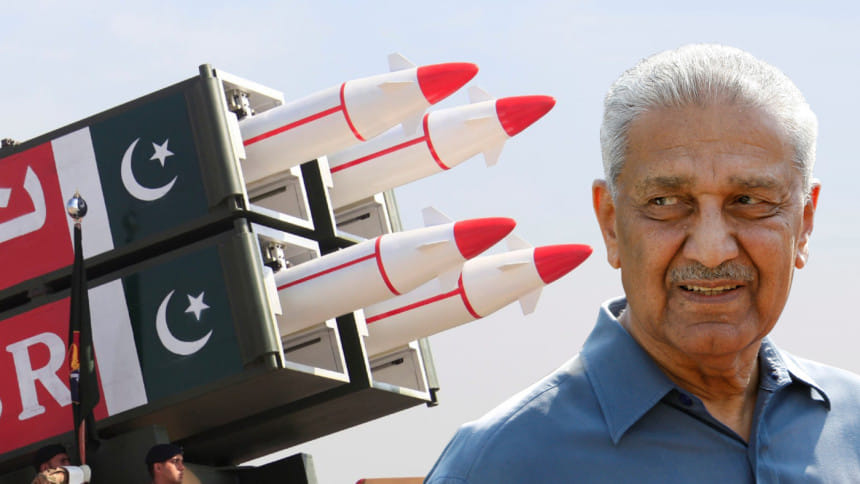AQ Khan: A life story no short of a Bond film

On October 10, Pakistan's "Father of Islamic Bomb" Abdul Qadeer Khan -- popularly known as AQ Khan -- passed away in Islamabad due to Covid-19. Unlike many other great men, Khan left behind a legacy no short of a Bond film.
In the early 1960s, Khan was selected by Berlin University to pursue a PhD in steel technology with Professor Stark as his supervisor. But before he could join the university, he was required to learn German in Frankfurt. Soon he felt depressed and shifted to a well-paying teaching job in a Nigerian university.
Later in the decade, during his summer vacation wanderings in Europe, at a gift card shop in Delft, the Netherlands, he met his future wife Henny, when she gave him a postal stamp which he needed. That led to their marriage, his shift to Louvain to study advanced metallurgy, and finally his employment at the Almelo uranium enrichment plant using nascent centrifuge technology, where Khan stole documents and plans to establish Pakistan's nuclear arsenal as a competing bid to India.
In 1975, Khan wrote to Pakistan's then Prime Minister Zulfikar Ali Bhutto, who asked him to return home. He consulted his wife who reflected and decided to stand by him. Life was tough. There were doubts about the project at home and outside.
Immediately after the 1998 Indian nuclear tests, India's Deputy Prime Minister LK Advani claimed, "By testing, we have called Pakistan's bluff." Yet, AQ Khan, with his dedicated team, improvised, developed and brought to Pakistan the proverbial Promethean Fire. Pakistan succeeded in developing a third route to producing fissionable material. The other two were developed by the United States (and adopted by successive nuclear-weapon states) at the Manhattan Project in the 1940s.
A clear acknowledgment of his achievement ironically comes from American officials and scholars. Worthy of citation is the wistful remark by American CIA Chief George Tenet (1997-2004), who wrote in his memoirs "At the Centre of the Storm", "Now I was going to ask him (President Musharraf) to take on a man (AQ Khan) who almost single-handedly transformed Pakistan into a nuclear power and who was considered a hero by the nation."
After Pakistan's nuclear test, Khan retired in Dubai and set up an unusual business. His secret global network of helpers, engineers, and financiers allowed him to offer other states his nuclear tradecraft, technology, and equipment. He traveled throughout the Middle East in the late 1980s and early '90s, offering his services to countries like Saudi Arabia, Algeria, even Syria, who rejected his covert, mercenary-like approach to building a nuclear arsenal, reports Israel-based publication Haaretz.
Iran and Libya, however, accepted Khan's proposals but altered the conditions and scope of implementation. Libya, lacking scientific infrastructure, asked Khan to provide a completed nuclear capacity. Iran, on the other hand, bought the plans of Pakistan's centrifuges P1 and P2 and built their own -- Ir-1 and Ir-2.
Talking once to a prying foreign media person who requested an interview for her documentary, AQ Khan ended the call with the remark, "Madam you are looking for a villain for your film. I am no Dr. Strangelove."
Sources: Dawn, Haaretz, The Wall Street Journal

 For all latest news, follow The Daily Star's Google News channel.
For all latest news, follow The Daily Star's Google News channel. 



Comments